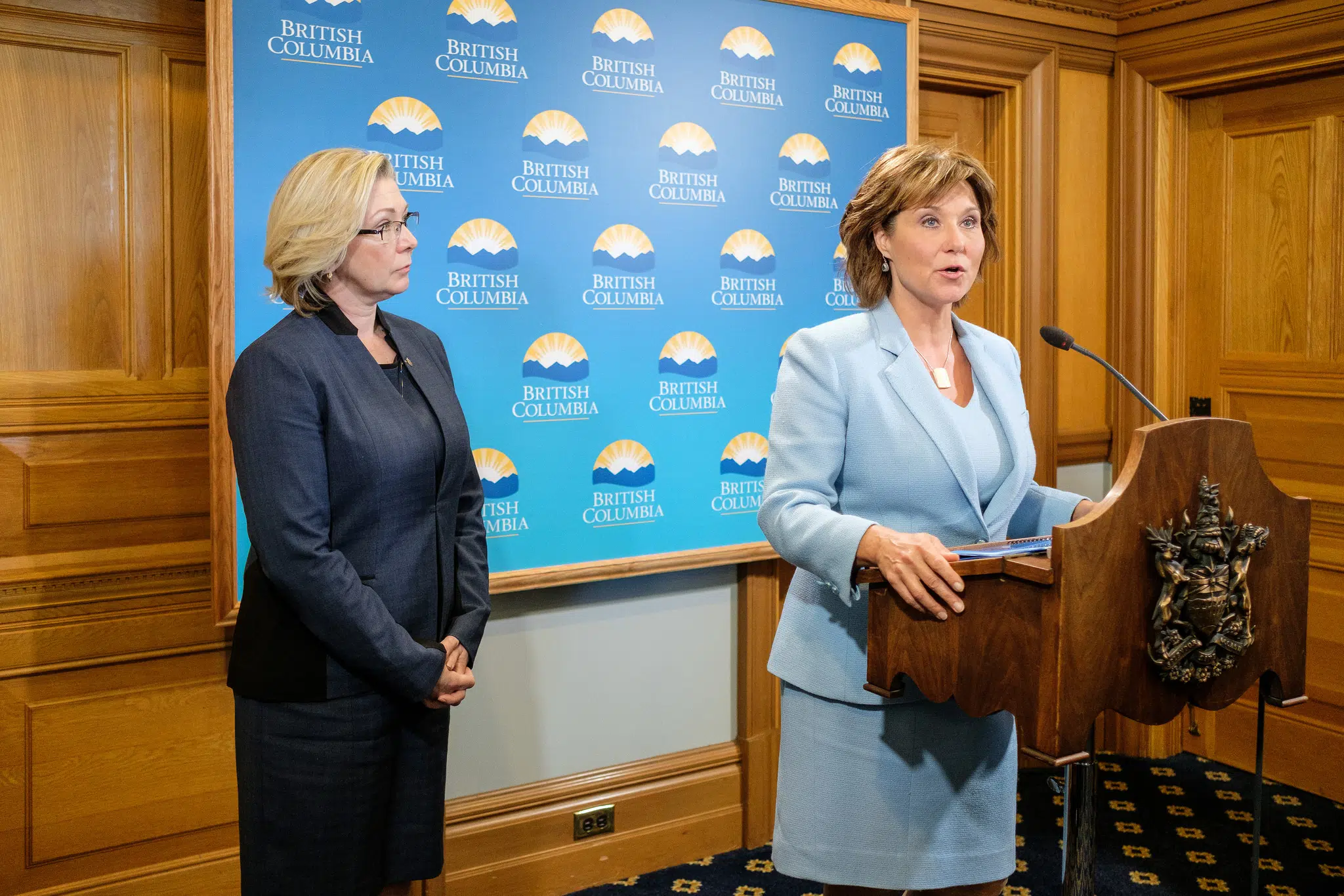
B.C. premier says five conditions met on Trans Mountain pipeline
VICTORIA — Premier Christy Clark announced British Columbia’s support for the expansion of the Trans Mountain pipeline Wednesday, saying the project meets her government’s five conditions for approval and includes a revenue-sharing agreement worth up to $1 billion.
Clark said she’s now convinced Kinder Morgan Canada’s $6.8-billion project will protect B.C. from potential environmental damage with world-leading spill prevention and response measures.
The project also promises $20 billion in economic growth over the next 20 years, she added.


